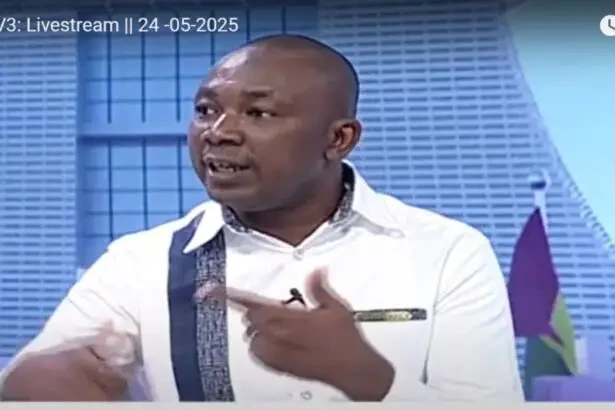A lecturer at the University of Ghana Business School, Professor Godfred Bokpin, has explained why the Ghanaian cedi is currently gaining strength against major foreign currencies, especially the US dollar. Speaking on TV3’s The KeyPoints program on May 24, 2025, Prof. Bokpin said the cedi’s appreciation is not by accident, but the result of better economic management and tough decisions.
At the start of the year, one US dollar was equal to 15 Ghana cedis. But by May 24, 2025, the rate had dropped to 11 cedis per dollar. Prof. Bokpin said this positive change came from cooperation between the Minister of Finance, Dr. Cassiel Ato Forson, and the Governor of the Bank of Ghana, Dr. Johnson Asiama. He also gave credit to the previous New Patriotic Party (NPP) government for building up the country’s gold reserves, which has helped improve the economy.
According to him, the government reduced its spending by about GHC10 billion compared to last year. This helped reduce the country’s borrowing needs, which also caused interest rates on treasury bills to fall. He described this as “shock therapy”—similar to putting the economy to sleep briefly to allow it to recover.
He also explained that the Finance Ministry and Bank of Ghana are now working closely together. In the past, monetary policy could not succeed because government spending was too high. Now, the two sides are working as a team. The Bank of Ghana is also removing excess money from the system to stop people from rushing to buy dollars.
Prof. Bokpin warned, however, that even though things look better now, maintaining this progress will be difficult. He said the appreciation of the cedi has been fast, and it might not last unless the government continues to manage the economy well. He noted that by 2026, government spending will likely increase again as new policies are introduced.
He also gave credit to the former NPP government for saving up reserves and not using them for political purposes before the last election. This made it easier for the new government to continue stabilizing the economy.
Prof. Bokpin believes the improvement in the cedi’s value is the result of good planning, tough decisions, and teamwork between key institutions. But he cautions that more work is needed to keep things stable in the long term.











